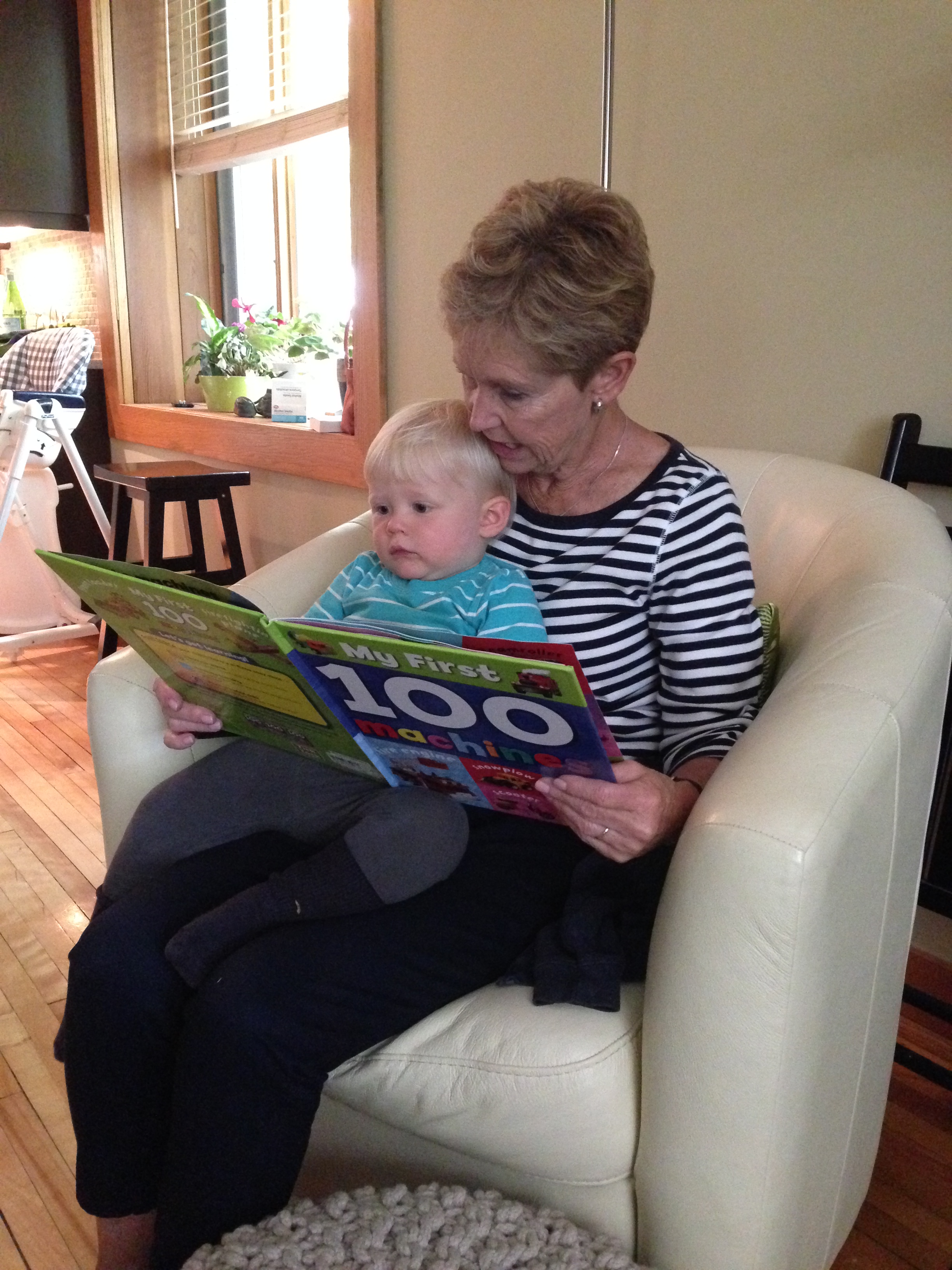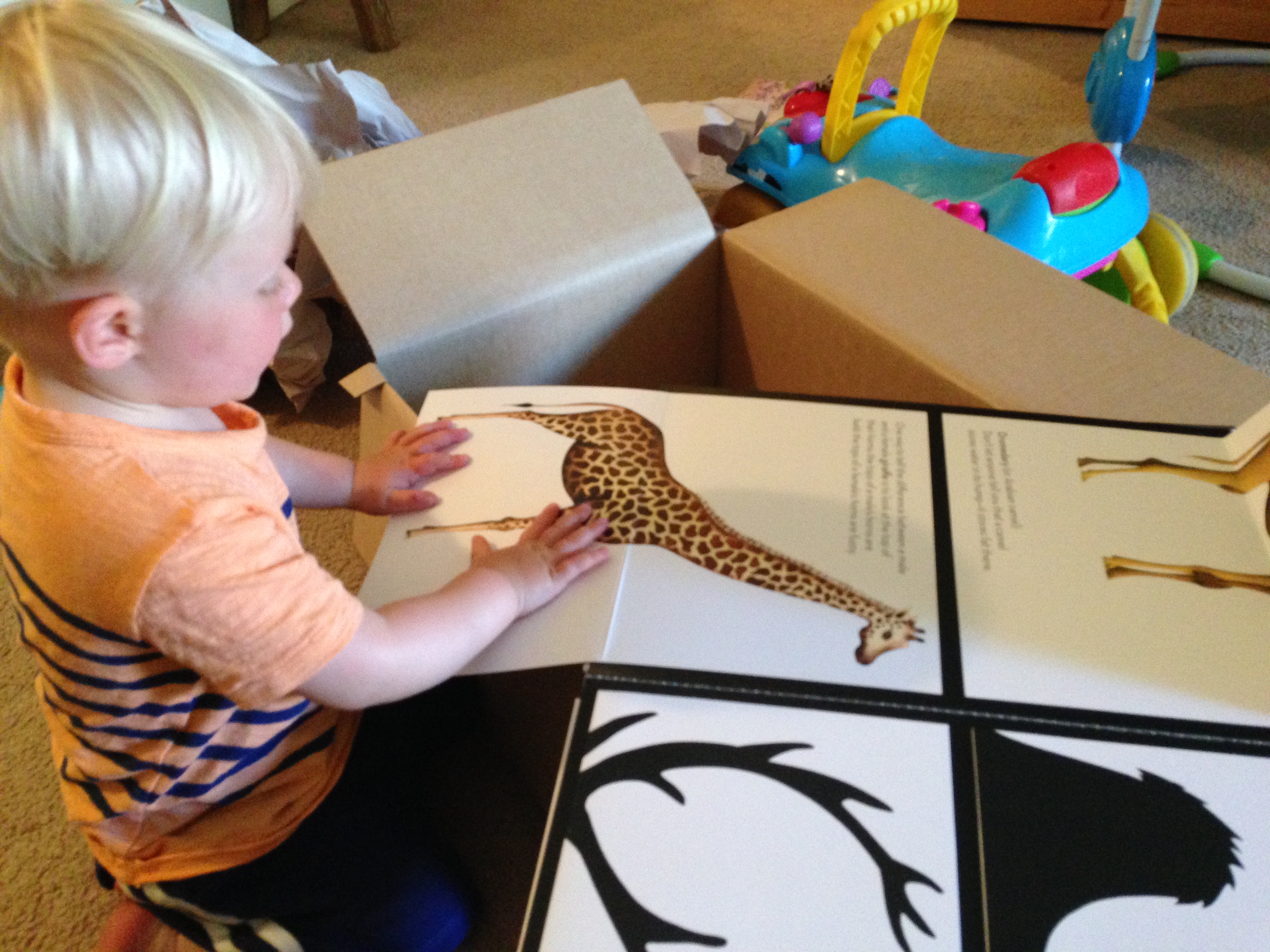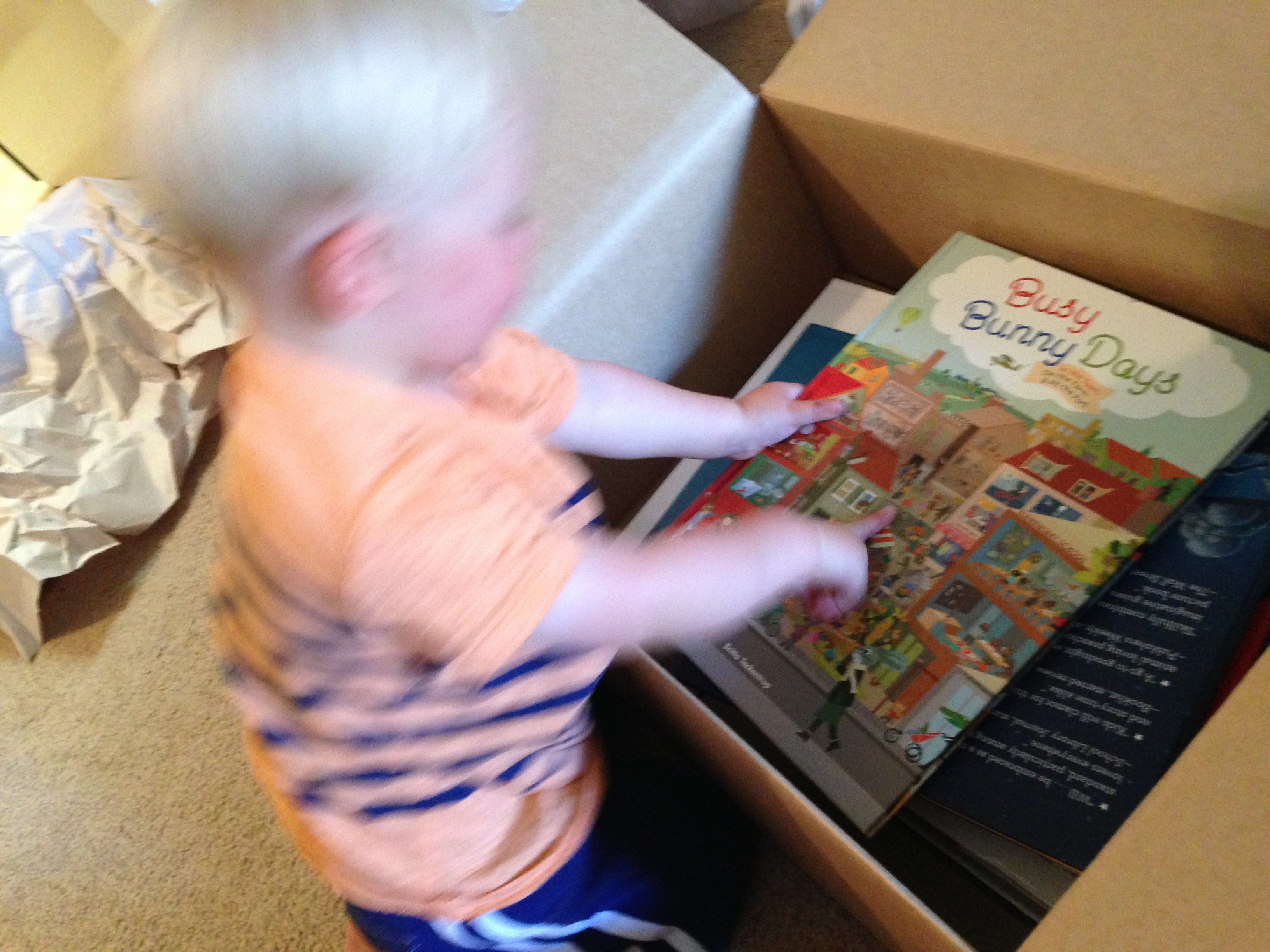
Louise Penny is one of those mystery writers whose works I can’t put down. I would say her Inspector Gamache series is a Canadian version of the British detective drama Foyle’s War, but set in contemporary Quebec. Chief Inspector Gamache of Homicide for the Surete du Quebec is on the far side of middle age, a solid man both in stature and personal fortitude, and he is good and kind. The series is the right mix of Sherlock Holmes, Miss Marpole and CSI.
I started reading the series with book #7, A Trick of Light and was hooked. The Beautiful Mystery was by far one of the most beautiful mysteries I’ve ever read. Each book in the series introduces readers to a tucked away corner of Quebec (sometimes a real place and often a fictionalized version of a real place) set in contrast to the tranquility of Three Pines, a small village outside of Montreal that is not on the map and without cell service. It’s the Miss Marpole component with quirky small-town characters who are a microcosm of the world at large but also who are living in a very special place, maybe even a magical place in a Gabriel Garcia Marquez kind of way.
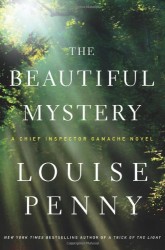
With The Beautiful Mystery, the location was the monastery of Saint-Gilbert-Entre-les-Loups, hidden deep in the wilderness of Quebec, where two dozen cloistered monks live in peace and prayer. Although they have taken a vow of silence, the monks are world-famous for their glorious chants. Gamache is called to the scene when the renowned choir director is murdered. The Vancouver International Writers Festival put on an amazing author event with Penny and Gregorian chanters recently so I was very excited to get a chance to attend this year’s author event.
Although there was no choir, Louise Penny was in fine spirits and instead of reading from her book, which of course would be a tricky feat if you didn’t want to reveal spoilers, she talked about herself, her writing process, how the Inspector Gamache series began, her first publishing contract, meeting her agent in a strange twist of fate and all the wonderful fans and “family” that have developed as a result of the books. It was like meeting a famous relative. She was lively and gracious and held the conversation without being full of herself. No wonder she can write a character like Gamache who is the embodiment of kindness and dignity.
One of the things I like about Louise Penny is the Acknowledgements come at the beginning of her book vs. tucked away at the end. It’s like how film credits used to appear in the opening sequence of a movie. Things that are meant to be read! She is very faltering of her agents, publishers and early readers, including the fine folks at Raincoast Books, where I used to work. It’s fun to see their names in print, especially when you know how much goes into making an author #1 on the New York Times bestseller list, or even getting on a bestseller list at all. (Of course, you need good writing, but it takes a village to bring the book up.)
As a former CBC radio host, Penny is incredibly well spoken. She has the gift of comedic timing and she takes pleasure in sharing her stories with fans. We were 700+ at the event in Vancouver, the last on what sounded like a loooong tour. Saving the best house for last? Anyway, she jokingly said she was taking “the long way home,” which is the title of book #10 in the series.
After an absolutely riveting book #9, How the Light Gets In, Penny introduces us to the now retired, former Chief Inspector of Homicide, Armand Gamache, who is living in the small village of Three Pines. Has he found peace away from the front line of the police, away from the dead bodies, away from the corruption that forced him into retirement? Maybe.
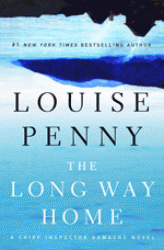
Gamache’s spirits are dampened but he’s not disheartened. He’s hurt physically but not beyond repair. The test of this comes when his neighbour Clara Morrow asks for help in finding her estranged husband Peter. The Morrows are well known Quebec artists but jealousy and fame has come between them. It’s a trial separation of one year, but Peter fails to return. He’s withdrawn $3000 from his bank account months ago and hasn’t been seen since. As much as Clara believes he’s missing because something is emotionally wrong, Gamache knows that it’s more likely physical.
In many ways this is a transition book. Our heralded Chief Inspector Gamache no longer holds that title. He’s been put out to pasture and that is always different than choosing to retire. What will happen to him? To the series? This book isn’t the answer to that, but we do get a crackerjack missing person’s mystery with all the tricky police work required to trace a person who doesn’t want to be found. Plus there’s the trials and tribulations of the art world, and the evocative rural Quebec settings. Plus the buttery croissants of the bakery in Tree Pines, which are worthy of mention because Penny makes me want to eat one every time she writes about them. Maybe the Gamache series is over and she’s going into food writing?
Or perhaps she’ll be a therapist. Each of the Inspector Gamache books present the discord in the apparent harmony. There’s a murder. There’s jealousy or rage. There’s double crossings. There’s hurt, both small crimes of the heart and big crimes against the law. And often it’s not about premeditated actions. Something breaks the silence. Or lots of small things break along the way. Given that Penny’s audience at the Vancouver International Writers Festival event last week were middle-aged, retirement-ready women and men, I think the book might be therapy for us. How do you not feel pushed into something? How do you value the gifts you have right under your nose vs. seeking solace elsewhere? How do you find creativity and inspiration when you’ve lost it? Whatever way you dice those tomatoes, the 10th books in the series, A Long Way Home, is good for many reasons.
And if you haven’t encountered the audio books, Ralph Cosham is a wonderful reader:
http://www.audible.com/series?asin=B006K1P8NC&mkwid=DSATitle&pmt=b&pkw=_inurl:asin%3D&source_code=GO1GB909GSH102413&gclid=CJTVpOq8z8ACFQ-DfgodmY4AVg
If you like following authors on Facebook, Louise Penny has a wonderful page:
https://www.facebook.com/louisepennyauthor
Thank you to Jamie Broadhurst and Dag Wagstaff at Raincoast Books for introducing me to Louise Penny and the Inspector Gamache series!
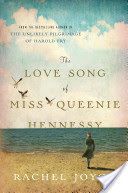 A quaint love story, or rather unrequited love story. Rachel Joyce’s first novel, The Unlikely Pilgrimage of Harold Fry, is the story of a saintly pensioner who walks, in yachting shoes, across England to say goodbye to a friend from long ago who is in a hospice. This is the other side of the story. Miss Queenie Hennessy is the friend who is waiting for Harold Fry, and while she waits, she writes out her confession and goodbye to Harold.
A quaint love story, or rather unrequited love story. Rachel Joyce’s first novel, The Unlikely Pilgrimage of Harold Fry, is the story of a saintly pensioner who walks, in yachting shoes, across England to say goodbye to a friend from long ago who is in a hospice. This is the other side of the story. Miss Queenie Hennessy is the friend who is waiting for Harold Fry, and while she waits, she writes out her confession and goodbye to Harold. 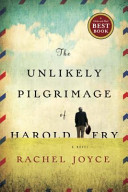 The Unlikely Pilgrimage of Harold Fry was shortlisted for the Commonwealth Book Prize and longlisted for the Man Book Prize. Read them both, why not.
The Unlikely Pilgrimage of Harold Fry was shortlisted for the Commonwealth Book Prize and longlisted for the Man Book Prize. Read them both, why not. 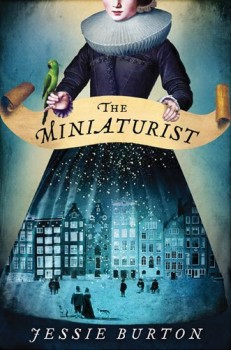






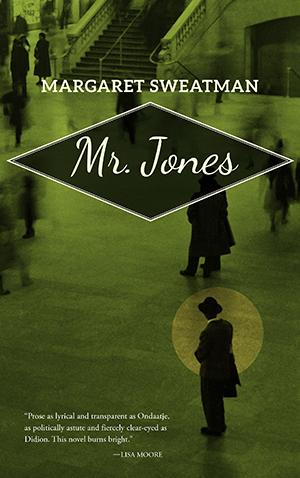
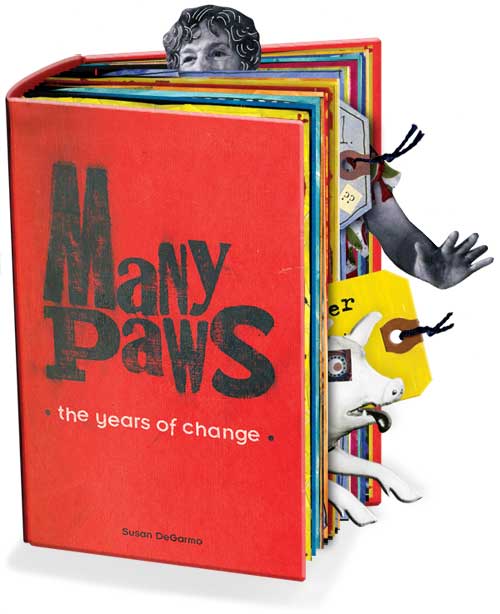
 Susan DeGarmo is a truly creative spirit. Born and raised in Memphis Tennessee, Susan “was always makin’ something’ from nothin’,” according to her grandma. While teaching an altered book class at a local college, she had a hot flash and decided to create Many Paws.
Susan DeGarmo is a truly creative spirit. Born and raised in Memphis Tennessee, Susan “was always makin’ something’ from nothin’,” according to her grandma. While teaching an altered book class at a local college, she had a hot flash and decided to create Many Paws.




